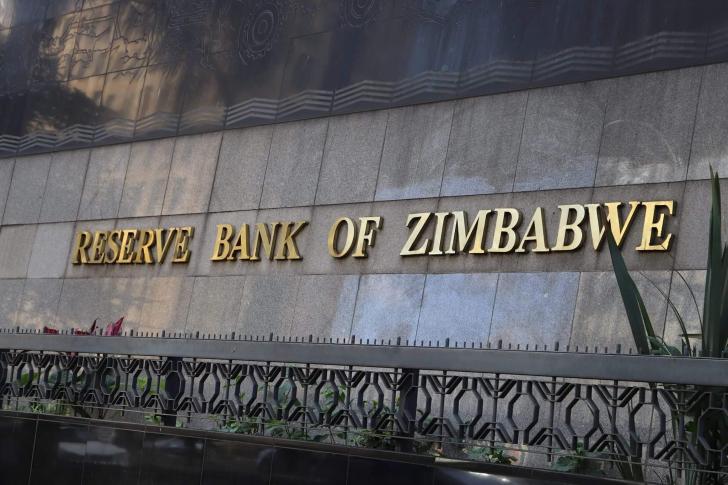News / Local
RBZ blames speculative behaviour for ZiG's woes
20 Oct 2024 at 13:12hrs |
0 Views

The Reserve Bank of Zimbabwe (RBZ) has attributed the recent collapse of the newly introduced Zimbabwe Gold (ZiG) currency to rampant rent-seeking behavior and speculative activities within the parallel market. This statement comes as the RBZ grapples with the economic challenges following the launch of the ZiG in April 2024, which aimed to stabilize the beleaguered local currency previously known as the RTGS.
Initially pegged at ZWG13.56 against the US dollar, the ZiG has now plummeted to a staggering ZWG45 for every US dollar in both the official and parallel markets. Nicholas Masiyandima, the RBZ's deputy director for economic research, modeling, and policy, spoke at the 42nd Employers' Confederation of Zimbabwe Annual Congress held in Victoria Falls. He expressed concern over the factors driving the parallel exchange rate and the growing premiums that have emerged.
Masiyandima highlighted the prevalence of speculative purchasing and currency pegging as significant contributors to the ZiG's instability. "One wonders who is driving the parallel exchange rate and the turbulence that we see," he stated. "The pressures on the exchange rate and inflation are not solely due to reckless currency issuance by the central bank or macroeconomic mismanagement, but are largely attributable to speculative tendencies."
Despite industry complaints regarding foreign currency shortages impacting operations, Masiyandima reassured that the RBZ maintains a tight monetary policy. As of October 4, 2024, the reserve money stood at ZiG3.1 billion, significantly backed by gold and foreign exchange reserves totaling US$419 million. He noted that this amount of local currency in circulation was insufficient to cause significant economic disruption.
The RBZ official pointed out the low uptake of foreign exchange in the willing buyer-willing seller market, emphasizing that liquidity remains a critical challenge. Following a major devaluation that saw the ZiG drop from ZWG14 to ZWG25, the RBZ intervened by injecting US$50 million into the market, yet only 60% of the available funds were utilized.
Masiyandima urged businesses to operate within realistic expectations and effectively utilize the willing buyer-willing seller facility to navigate the ongoing liquidity shortages. "The challenges we face are related to liquidity, which we need to stabilize prices and the exchange rate," he added. "Until we achieve that stability, we must continue with a restrictive monetary policy."
As Zimbabwe continues to navigate its complex economic landscape, the RBZ remains focused on implementing measures to restore confidence in its currency and address the factors undermining its stability.
Initially pegged at ZWG13.56 against the US dollar, the ZiG has now plummeted to a staggering ZWG45 for every US dollar in both the official and parallel markets. Nicholas Masiyandima, the RBZ's deputy director for economic research, modeling, and policy, spoke at the 42nd Employers' Confederation of Zimbabwe Annual Congress held in Victoria Falls. He expressed concern over the factors driving the parallel exchange rate and the growing premiums that have emerged.
Masiyandima highlighted the prevalence of speculative purchasing and currency pegging as significant contributors to the ZiG's instability. "One wonders who is driving the parallel exchange rate and the turbulence that we see," he stated. "The pressures on the exchange rate and inflation are not solely due to reckless currency issuance by the central bank or macroeconomic mismanagement, but are largely attributable to speculative tendencies."
The RBZ official pointed out the low uptake of foreign exchange in the willing buyer-willing seller market, emphasizing that liquidity remains a critical challenge. Following a major devaluation that saw the ZiG drop from ZWG14 to ZWG25, the RBZ intervened by injecting US$50 million into the market, yet only 60% of the available funds were utilized.
Masiyandima urged businesses to operate within realistic expectations and effectively utilize the willing buyer-willing seller facility to navigate the ongoing liquidity shortages. "The challenges we face are related to liquidity, which we need to stabilize prices and the exchange rate," he added. "Until we achieve that stability, we must continue with a restrictive monetary policy."
As Zimbabwe continues to navigate its complex economic landscape, the RBZ remains focused on implementing measures to restore confidence in its currency and address the factors undermining its stability.
Source - the standard
Join the discussion
Loading comments…































